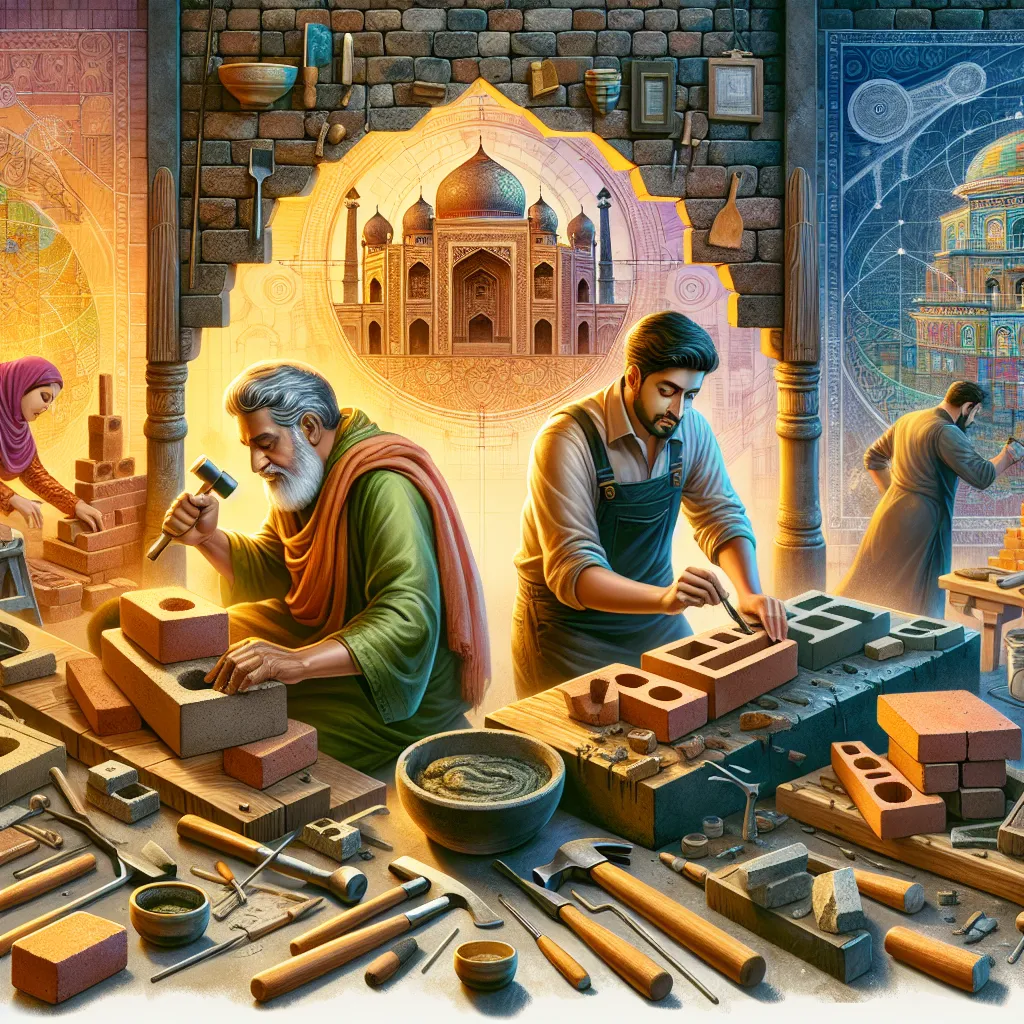Understand your Materials
One of the foundations of masonry is a deep understanding of your materials. Bricks, stones, and mortar all have unique characteristics that affect how they perform and interact with each other. For example, using the wrong type of mortar for your bricks can lead to premature deterioration. Spend time studying different materials and how they respond to environmental factors like weather and pressure.
Master the Art of Mixing Mortar
Mortar acts as the adhesive in masonry, holding bricks or stones together. Achieving the right consistency when mixing mortar is crucial. Too dry, and the mortar will crumble and fail to bond properly. Too wet, and it can weaken and crack over time. Practice mixing mortar to a consistency of thick peanut butter, ensuring it's wet enough to bond but dry enough to hold its shape.
Practice Precise Measuring and Cutting
Good masonry depends on precision. When laying bricks or stones, small measurement errors can accumulate and lead to significant problems. Practice measuring and cutting materials accurately, and always double-check your work. Remember, the adage "measure twice, cut once" is equally applicable to masonry.
Learn Proper Jointing Techniques
The appearance and durability of masonry work often come down to the quality of the joints. Techniques such as concave, v-joint, or flush jointing can significantly affect the final look and water-resistance of your project. Spend time mastering different jointing techniques and understand when to use each one.
Prioritize Safety
Masonry work involves inherent risks, from handling heavy materials to dealing with hazardous substances like cement dust. Always prioritize safety by wearing appropriate protective gear and following safe working practices. Remember, a good mason is a safe mason.
Conclusion
Becoming proficient in masonry requires patience, practice, and a commitment to continuous learning. By understanding your materials, mastering the art of mixing mortar, practicing precise measuring and cutting, learning proper jointing techniques, and prioritizing safety, you can take significant strides towards perfecting your masonry skills. Embark on this journey with dedication, and the results will undoubtedly be rewarding.
